Recently I had the chance to attend the Island Creek Oyster Festival in Duxbury, MA. While being a fan of oysters is reason enough to go, this time around I was lucky enough to score a VIP/backstage pass through my husband Dan, a budding chef (and blogger!) who was helping out the nice folks from East Coast Grill for the day.
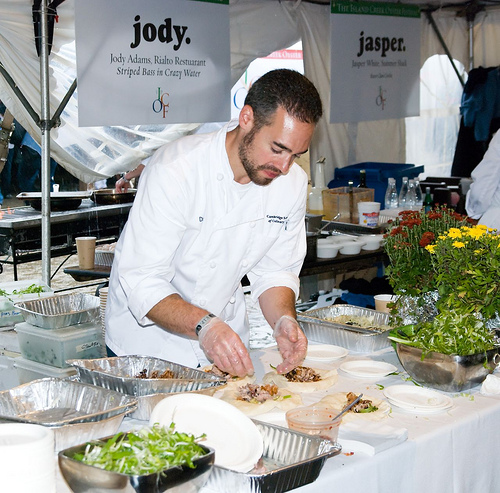
Interestingly, the event caught my attention not just for the long "who's who" list of local chefs participating, but also because it was billed as a sustainable, or green, event:
This year, the Island Creek Oyster Festival is attempting to go as green as possible. The Festival plans to donate all oyster shells to the New Hampshire oyster shell recycling project; chefs and beverage sponsors will use compostable plates, glassware, and utensils; and attendees will be asked to participate by lending a hand in all recycling efforts.
There were some things that this festival did really well. These included:
A table at the entrance with lots of great sustainability information for local residents...
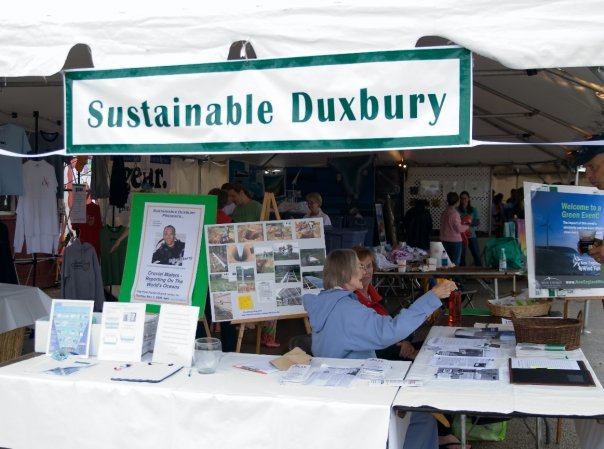
...and details on the New England Wind Fund.
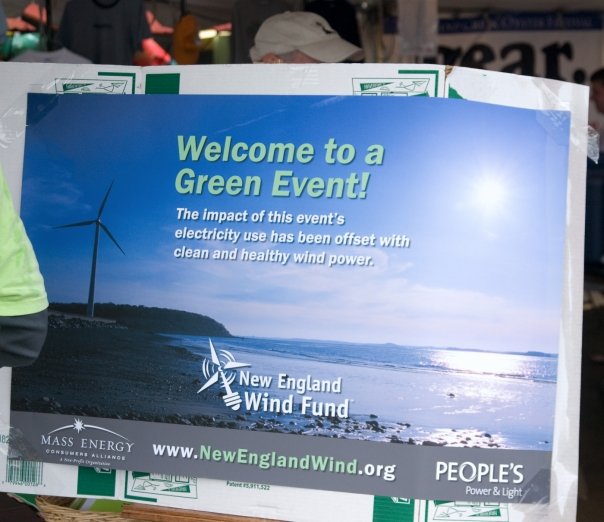
Perhaps the other most noticeable indication that this was a green event was the presence of multiple recycling containers throughout the festival grounds. At each recycling station (there must have been at least 10 stations set up), there were separate bins for oyster shells (being recycled for fertiziler - so cool!), compost, single stream recycling, and all other trash. There were a ton of volunteers at the event, and I saw them regularly swapping out full containers of recycled material with fresh, empty ones. Given the sheer size of the event (with almost 3,000 people expected) and the fact that all cups, plates, and utensils were recyclable, you can imagine that they collected quite a bit by the end of the night.
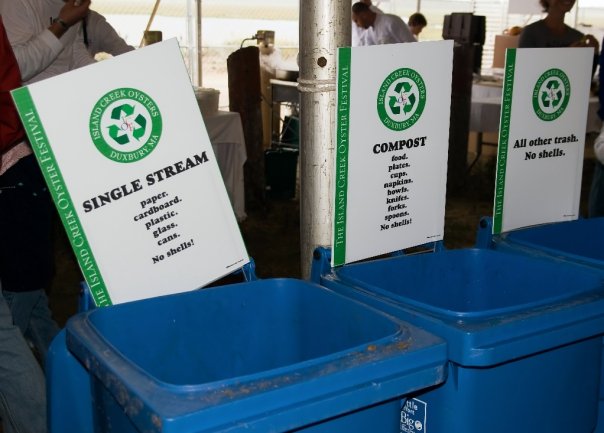
That said, there were some indications that this green event didn't quite get everything right.
First of all, as terrific as all of those recycling bins were, the number of choices one person had to make in order to throw away his or her trash was just too overwhelming for some to grasp. Here you can see one guest trying to figure just where to put everything:
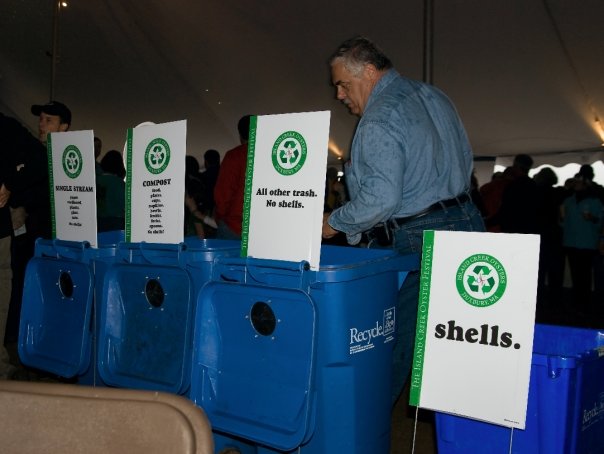
While the education aspect of this recycling experience can't be overlooked, I do believe there are some issues with asking people to do too much. When you combine good food and drinks with long lines for oysters, you get a crowd that's more interested in dumping their trash wherever they can, not making sure they sort things correctly. In fact, I saw numerous volunteers just standing by the bins trying to direct guests where to put their recyclables - and even that didn't stop them from having to dumpster dive regularly to re-sort plates that had gone into the wrong bin.
Yes, education is crucially important - but I wondered what the event committee could have done to streamline this so that it was easier for everyone to participate?
Also, even though all of the materials used were recyclable, there seemed to be no coordination among chefs to get them to share plates, utensils etc. This meant that at every food station guests received a new plate, new napkin and new utensils - and from my observations it appeared very few guests used their plates more than once. What good is a plate made from recycled materials if it's not used more than once?!
Finally, perhaps the most embarrassing green mishap of the night: Water Bottles!
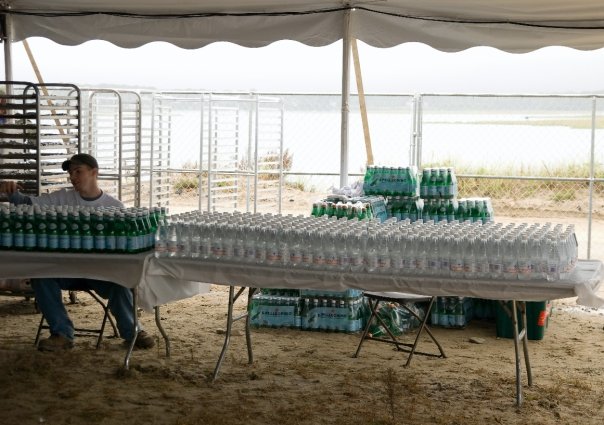
All night long this table was stocked with water bottles - and with no opportunity to refill them, they were used once and tossed. Just trying to stay hydrated, I went through 3 bottles myself! For a green event planning committee that had gone so far as to recycle oyster shells, you'd think they would have considered something a bit more earth-friendly...
In all, it really was a terrific event - and it did raise money for a great cause (the Island Creek Oysters Foundation). I was personally very proud of their efforts to make this event as sustainable as they could. In the end, I think it's a great case study of how hard it is to "do sustainable" the right way. Their intentions were good, but they just missed the mark on a few key things.
#1 Takeaway for next year's event? Give everyone their own reusable cup!







